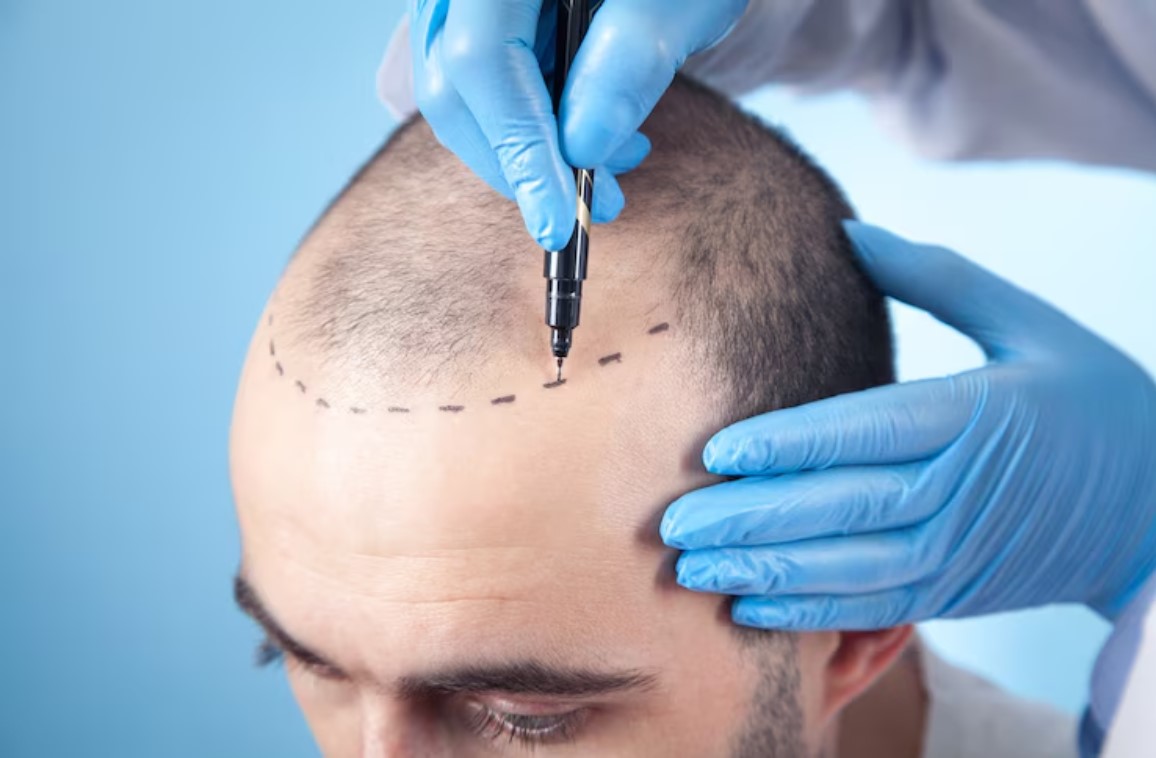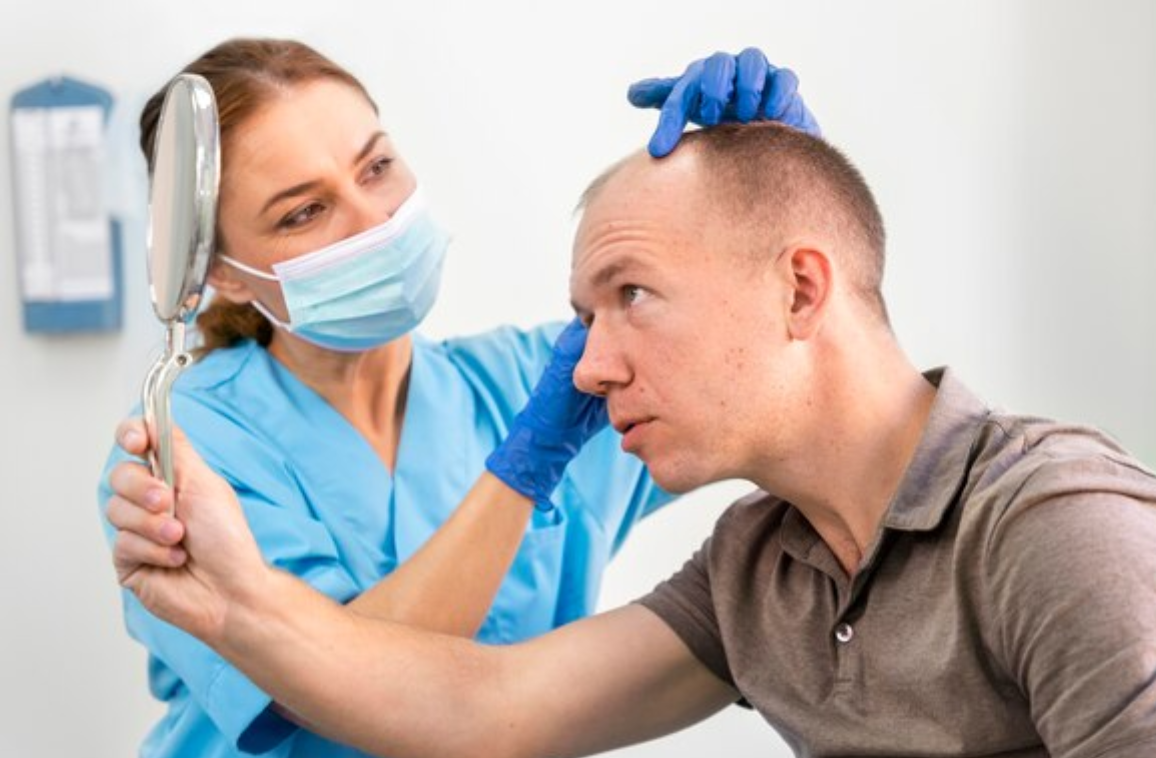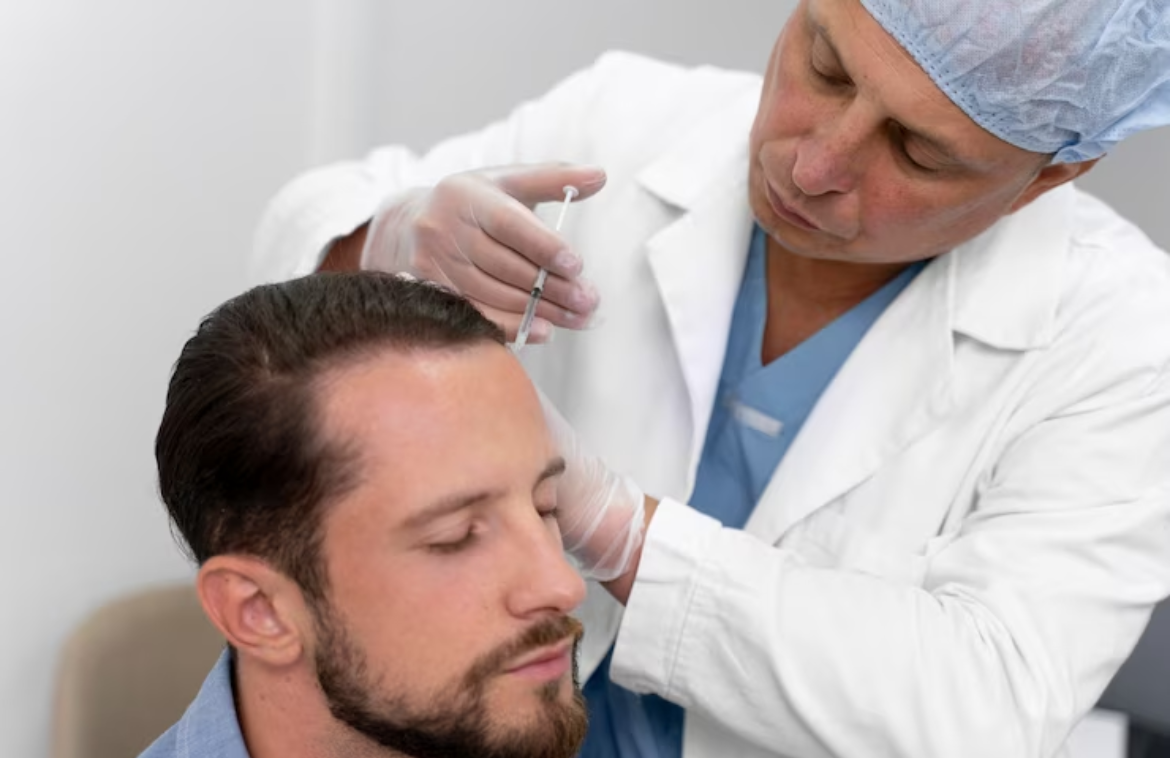Hair transplantation is a procedure that does involve the transfer of hair follicles, from one part of one’s body (known as the donor site) to another area that is experiencing hair loss or thinning (known as the recipient site). It is of course, mainly used to address male pattern baldness. It can be used for other sorts of hair loss.
Factors Influencing Hair Transplantation Success Rate:
1. Surgeons Expertise:
Choosing an experienced surgeon with a proven track record is indeed crucial. Their technique, skill set, and understanding of needs significantly impact the outcomes.
2. Patient Characteristics:
Factors such as age, scalp health, hair quality, and underlying medical conditions can influence the results. Usually, younger patients, with good scalp health and robust hair tend to experience better outcomes.
After the procedure, it is indeed crucial to follow the doctor’s instructions regarding wound care, medication, and general recovery. This does play a role in ensuring graft survival and achieving results.
When aiming for the desired hair density, careful planning is required. Depending on the extent of the baldness and the desired outcome, multiple sessions are needed.
The health and availability of hair follicles in one’s donor area do impact the number of grafts, for transplantation. Once transplanted, the grown hair requires care similar to existing hair. Maintaining a lifestyle and following a hair care routine can contribute to long-term success.
Consulting with a hair transplant surgeon is important. They will assess one’s case, discuss expectations, and also help a person understand the factors that can influence one’s potential success.
Side Effects of Hair Transplantation:
Like any kind of procedure, there are complications associated with hair transplantation. Hair transplantation is usually considered a safe procedure, yet people ask queries like, Is hair transplantation painful? It is important to be aware of potential complications, before making a decision. These complications can indeed vary in severity, ranging from inconveniences to significant issues.
Complications after Hair Transplantation Surgery:
1. Bleeding: It is normal to experience some minor bleeding, but excessive bleeding, requires additional treatment.
2. Swelling: This is common as the scalp swells after the procedure, but the swelling usually subsides within a few days.
3. Pain and Discomfort: The doctor will prescribe pain medication to help manage any post-surgery discomfort.
4. Numbness: Temporary numbness in the recipient area can occur due to nerve disruption. It does tend to resolve over time.
5. Infection: Proper care and hygiene are crucial in minimizing the risk of infection in one’s wounds.
6. Crusting and Scabbing: The formation of scabs in one’s transplanted area is normal, but it is important to clean them carefully to prevent infection.
Long-Term Complications After Hair Transplantation Surgery:
- Scarring: Scarring is usually minimal, as there can be scars in both the donor and recipient areas depending on the healing and the technique used during transplantation.
- Unnatural Hair Growth: If hair follicles are implanted at incorrect angles or densities, it could lead to unnatural hair growth patterns.
- Shock Loss: Temporary hair loss around the transplanted area can occur initially but tends to re-grow over time.
- Folliculitis: When the hair follicles get inflamed, it can lead to the development of bumps and irritation.
- Allergic Reactions: While it is rare, there is a possibility of experiencing reactions, to anesthesia or even medications made during the procedure.
Common Risks with Hair Transplantation:
- Tissue Death: Though of course uncommon, there is a chance that the transplanted follicles may not receive sufficient blood supply, potentially resulting in tissue death.
- Keloids: Individuals who do happen to be prone to keloid formation may indeed develop raised scars.
- Complications at the Donor Site: infection, scarring, and numbness in the donor area are complications that can arise.
Conclusion
Consulting a qualified hair transplant surgeon is important for the potential success of hair transplantation.





